5 Ethical Cocoa Brands That Don’t Rely on Child Labor
Choose your chocolate wisely.
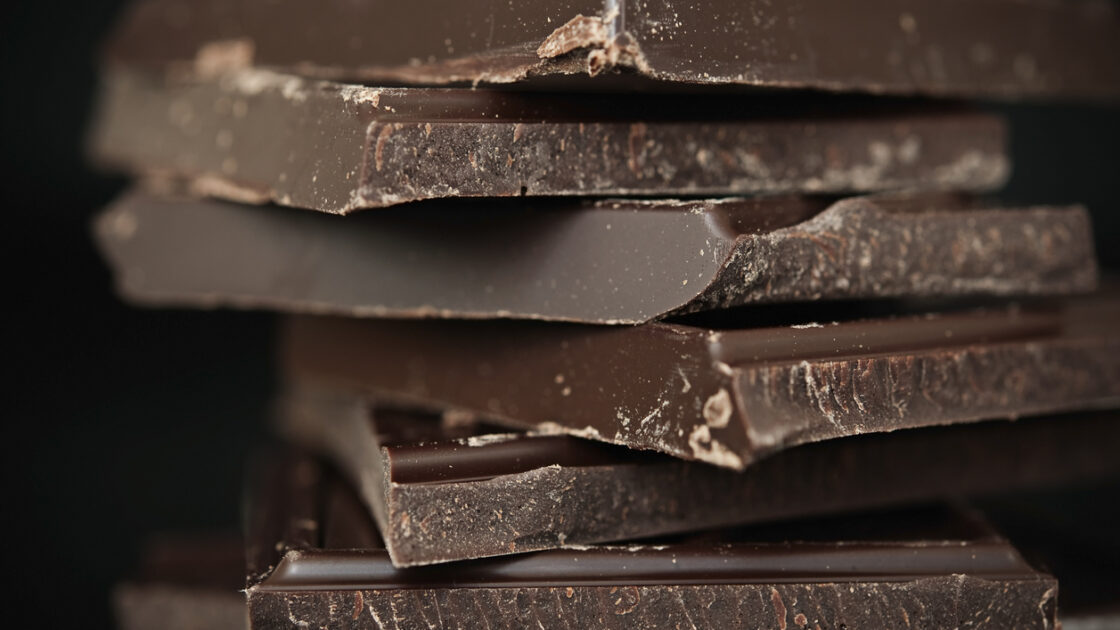
Calling chocolate a guilty pleasure is so 2010… unless your chocolate isn’t fair sourced. The health benefits of dark chocolate have certainly been proven, ranging from anti-inflammatory benefits to improved memory. But where you get your chocolate is of utmost importance too – not just for your health, but for the health and wellbeing of the people producing it.
About 70 percent of the world’s cacao comes from Western Africa, where many larger companies rely on child labor – and, in some cases, on slavery – to bring less expensive chocolate to the masses. According to a 2015 U.S. Labor Department report, more than 2 million children were engaged in dangerous labor in cocoa-growing regions: children as young as five handle dangerous tools like machetes and are in contact with chemical herbicides and pesticides without protective clothing.
Newspapers including the Washington Post have been working diligently to expose this human rights crisis.
“The world’s chocolate companies have missed deadlines to uproot child labor from their cocoa supply chains in 2005, 2008 and 2010,” reports the outlet. “As a result, the odds are substantial that a chocolate bar bought in the United States is the product of child labor.”
Organizations like Fairtrade, Utz and Rainforest Alliance work hard to certify chocolate companies who are doing things right, though these systems remain imperfect, and the Post reports that even farms employing children could ostensibly pass inspection.
But as consumers, we have a say in how our chocolate is produced. As representatives from large brands like Hershey, Mars, and Nestlé continue to refuse to guarantee that their chocolate is made without child labor, it’s important to turn to trustworthy brands that are transparent about their methods. Here are five we love.
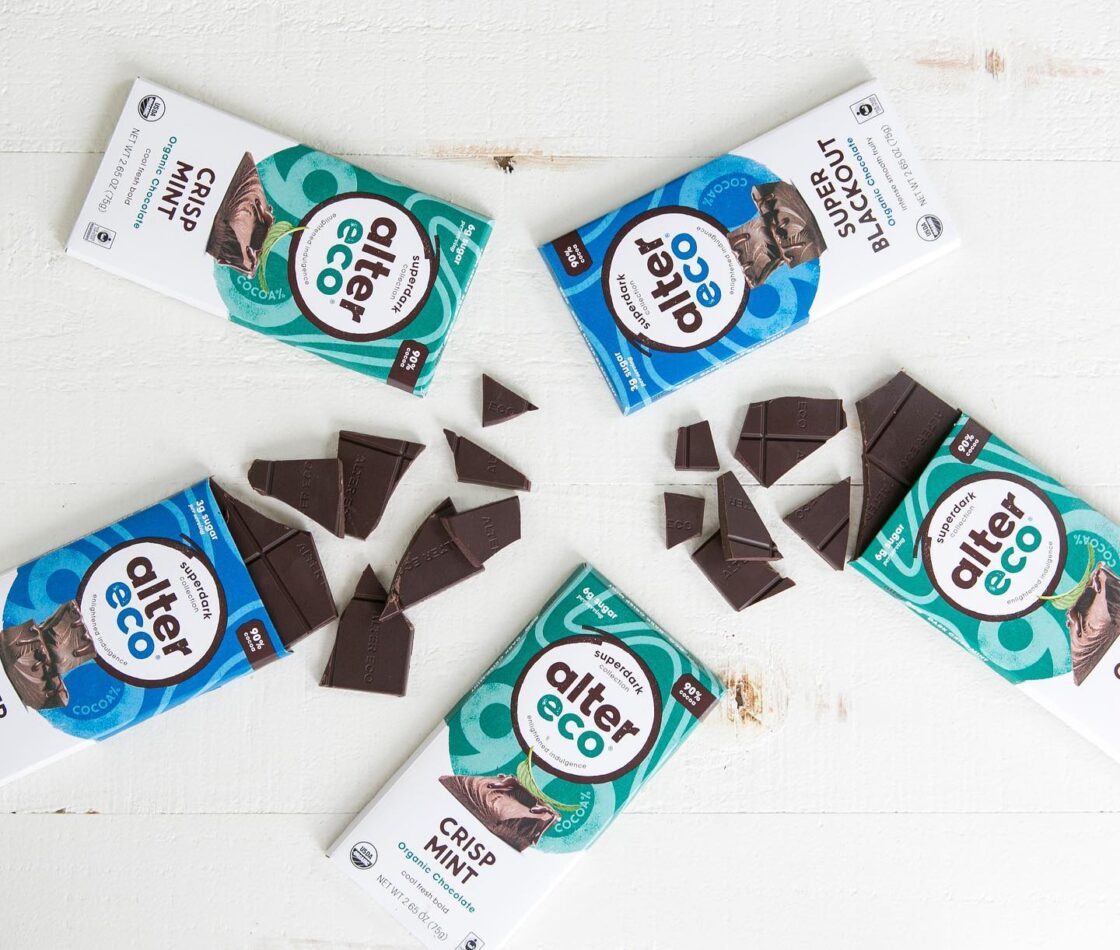
1. Alter Eco
Alter Eco chocolate bars and truffles are made with cacao sourced from South America where, according to Food is Power, it is less likely that cacao is farmed using child labor. Alter Eco goes several steps further, not just paying Fair Trade premiums, but also committing to providing targeted assistance to local partners to help improve the quality of life in the regions where this chocolate is produced.
“Fostering a full-circle sustainability model guarantees that children in farming communities are in school where they belong, and not working in the fields,” Mathieu Senard, Co-Founder & Co-CEO, Alter Eco Americas, PBC, tells Conscious Company Media. “It also means respecting the health of farmers and consumers by exclusively using organic crops and refusing the use of chemicals. Finally, it is an opportunity to promote agroforestry, which produces the best cacao beans while replanting trees and combating deforestation.”
Alter Eco sports a panoply of certifications, from Fair Trade to USDA organic to B Corp. The company is constantly seeking out new ways to offset the effects of its production, including planting trees in Peru as part of a carbon offset program and sponsoring employee benefits like paid public transportation.
Alter Eco’s organic bittersweet bar is perfect for fans of seriously dark, intense chocolate, with 85 percent cacao blended with cocoa butter, raw cane sugar, and a touch of vanilla. You can buy it on Amazon.
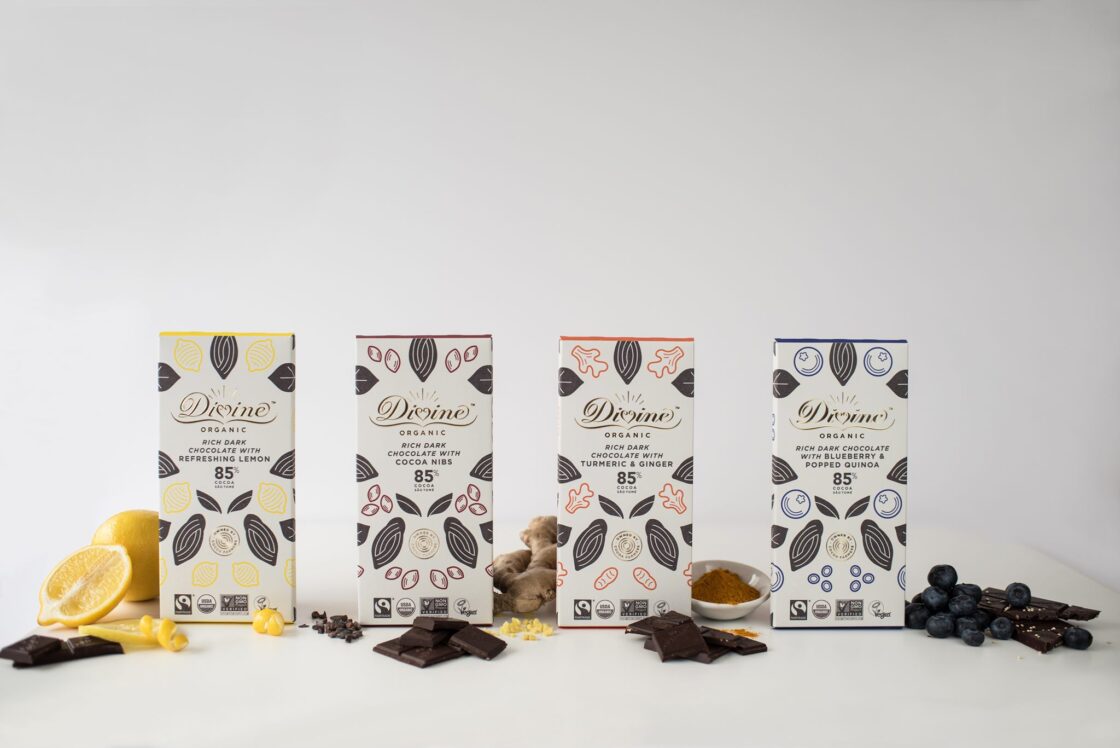
2. Divine
This brand is the only one that’s co-owned by the 85,000 members of the Ghanaian cooperative that produces the delicious cacao that goes into these bars. Farmers earn part of the profit – and have a stronger voice in how the company is managed.
Divine is particularly committed to providing opportunities for women to gain independence and thrive, including literacy programs, numeracy programs, and training and facilitation for women in careers as elected buying clerks.
In addition to the fair trade cacao that is at the core of these bars, Divine relies on other fair trade ingredients like mango, almonds, and coconut, to add flavor to its chocolate. Its new organic line features four 85 percent cocoa bars that are also USDA certified organic, vegan, and devoid of palm oil and soy, with flavors like ginger-turmeric or blueberry-quinoa.
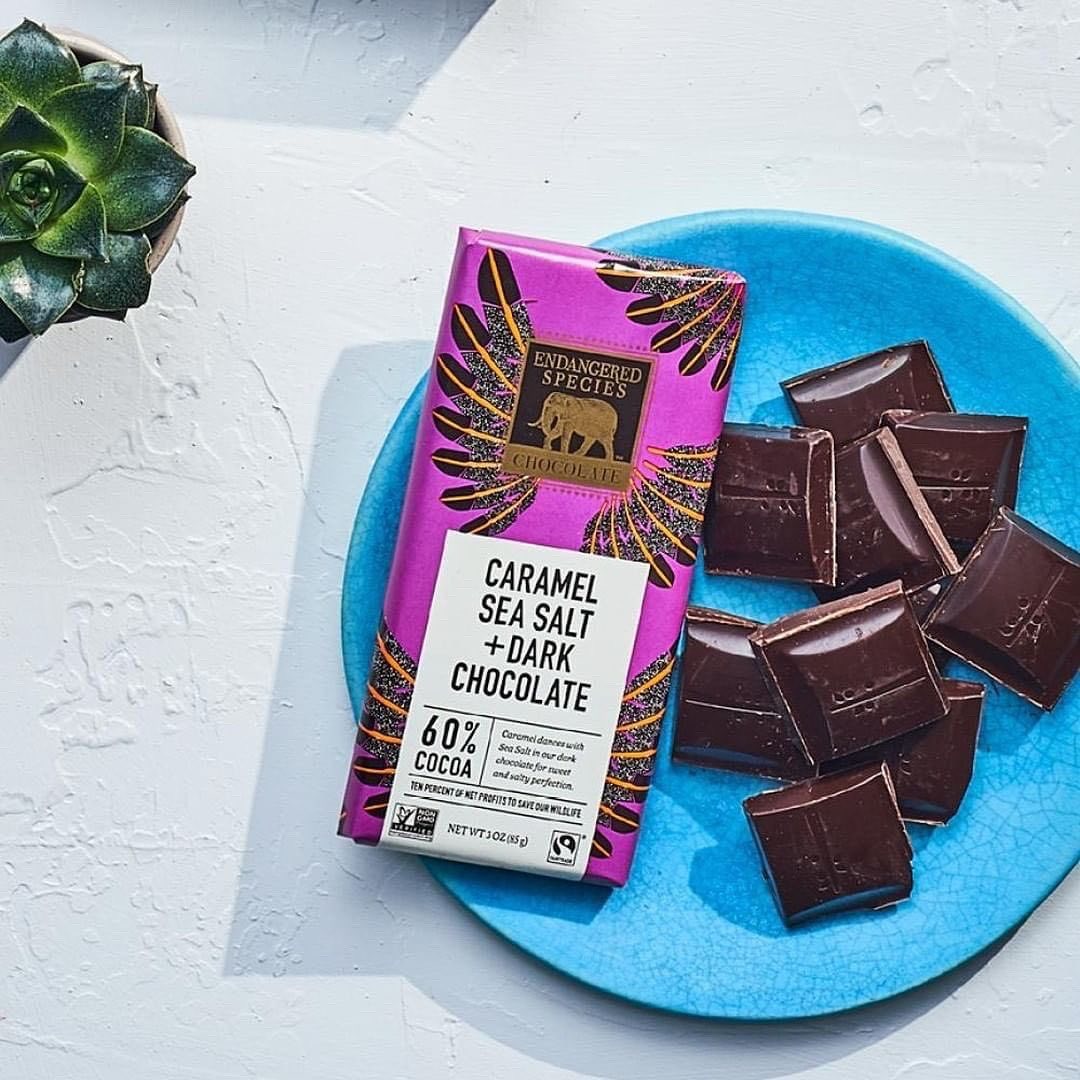
3. Endangered Species
The dual mission of Endangered Species is evident from the company’s name: not only is this chocolate produced using fair methods, but it’s also made with the goal of protecting wildlife diversity. Ten percent of the company’s net profits are donated to partner organizations protecting species and habitat conservation.
The cacao itself is sourced from Rainforest Alliance-certified cacao farms in West Africa, with the goal of promoting the development of health centers and schools in the region. As the first chocolate company to source all of its cocoa from West Africa through Fairtrade, Endangered Species is 100 percent committed to improving the livelihoods of these farmers.
Each Endangered Species bar is named for a different endangered animal or ecosystem, like 82 percent dark Panther or minty Rainforest both available on Amazon.
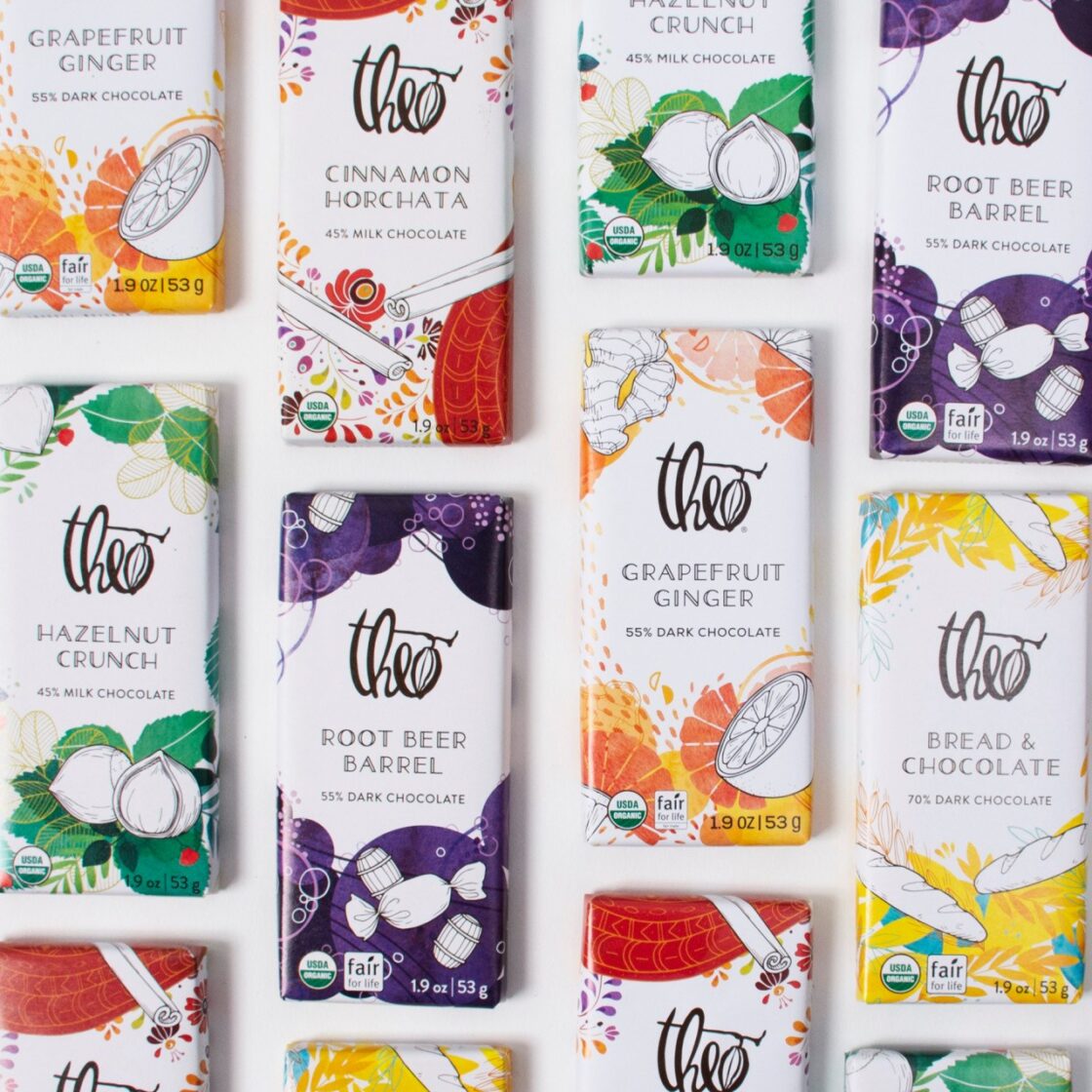
4. Theo
In partnership with organizations like the Eastern Congo Initiative, the Jane Goodall Institute, and the World Bicycle Relief, Theo is dedicated to the production of ethical, sustainable, artisan chocolate.
“Theo’s model is based on a core idea,” writes the company. “Chocolate can be made in a way that allows everyone in the bean to bar process to thrive.”
Theo is the first company to own and manage its own fair trade bean-to-bar chocolate factory, allowing the company to pay above-market prices to farmers in Peru and the Democratic Republic of the Congo and control the quality of its product from beginning to end.
“We want to pay farmers enough money that they can invest in sending their children to school and on-farm investments,” writes the company. “This type of change is long lasting and systemic.”
Theo’s unique flavors like turmeric spice and salted toffee are innovative and delicious.
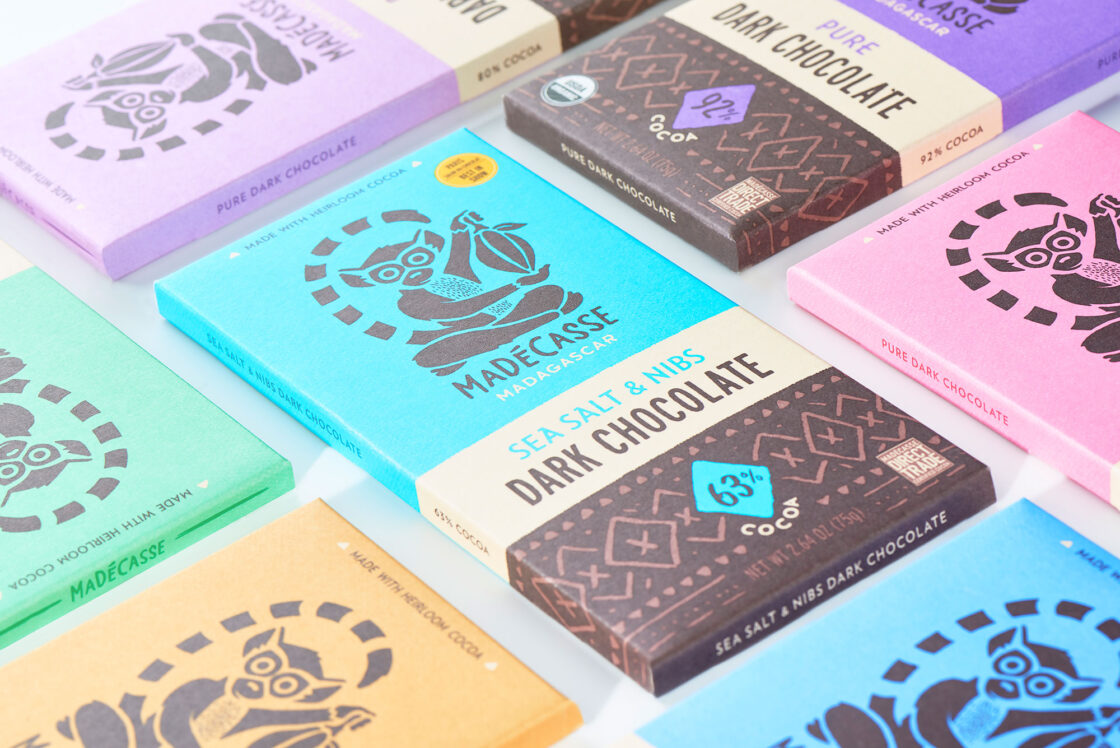
5. Madécasse
This Madagascar-made chocolate has a keen focus on developing the local economy in the African nation. These chocolate bars are produced and hand-wrapped in Madagascar, an initiative that has enabled Madécasse to create 200 jobs on the ground.
“Madécasse is the only chocolate available in the US that’s actually made in Africa, while nearly 70 percent of the chocolate in the US market is made with cocoa from Africa,” a company rep tells Conscious Company Media. “We’re proud to be among the very few companies worldwide who have even attempted chocolate-making in Africa, and we’re empowering Africans in the process, economically and socially.”
Madécasse is made with heirloom criollo cacao and is perfect for lovers of pure, dark chocolate and is available on Amazon.
Related on Organic Authority
You Can Now Say Your Chocolate Addiction is Helping You Lose Weight
These 5 Drool-Worthy Chocolate Bars are Seriously Dark and Seriously Delicious
5 Chocolate Breakfast Recipes that Will Restore Your Faith in Humanity
*Note! This article contains affiliate links that are independently sourced and vetted by our editorial team which we may earn a commission on. This helps us reduce the number of ads we serve on Organic Authority and help deliver you a better user experience. We are here to help you navigate the overwhelming world of consumer products to source and uncover thoughtfully made, conscious clean products for you and your family.

